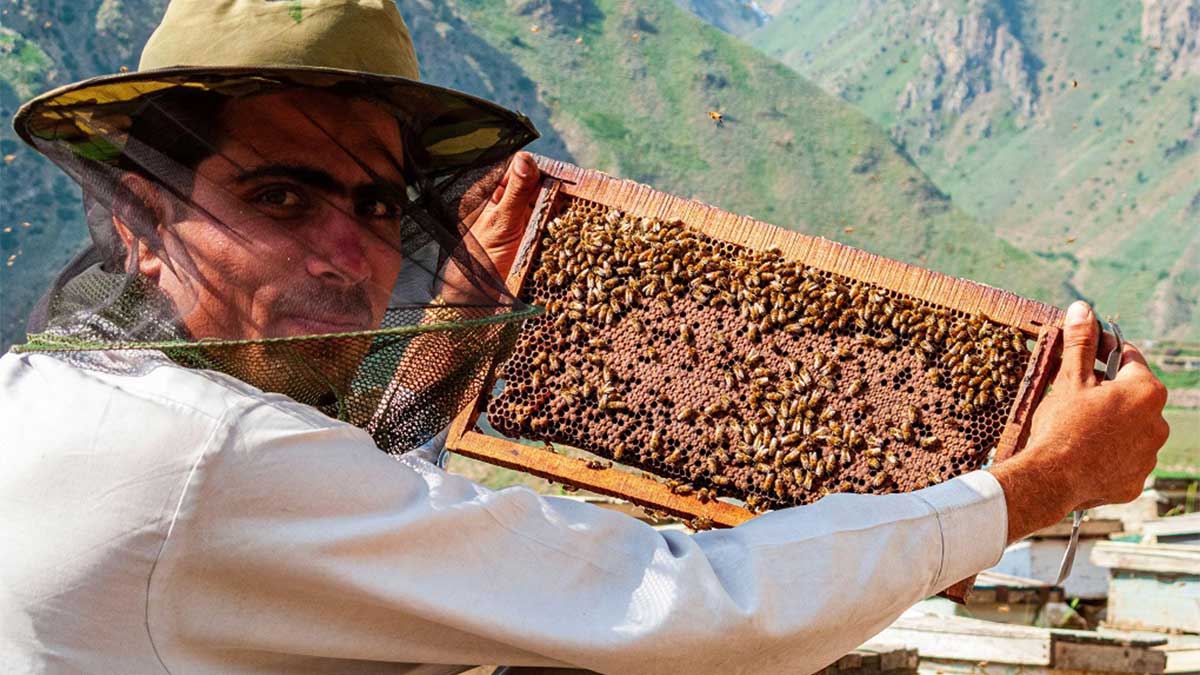The honey production of Pakistan has the potential to increase ten times if modern technologies and practices are adopted, revealed a research.
According to the report by the China-Pakistan Agricultural and Industrial Information Cooperation Platform (CAPIC), Pakistan can raise production of honey 10 times. The studies have proven that the quality of most natural raw honey of Pakistan meets all requirements of international standards.
The honey produced in the country is recognized as one of the most valuable types of honey in the world.
Honey’s production in the county not only can rise above 70,000 tons per year but can create around 87,000 green jobs.
Read more: Turkey sets up advanced honeybee research laboratory in Islamabad
Moreover, CAPIC report further revealed that laboratory tests in the US and Europe have declared Pakistani honey of superior quality based on its total sugar, acidity, pH value, HMF invert sugar, proline, protein, and other essential nutrients levels.
But the potential of this lucrative industry has not been fully unleashed restricted by low yield and low prices. In 2019, each beekeeper brought 11.7 kg of honey in Pakistan on average, while the world average is 20.6 kg. Nectariferous plants falling victim to pesticides, absence of modern technologies, and lack of certification system are adding a taste of bitter to apiculture.
The honey exports in country only take up 20 percent of total production. If the industry is modernized, the sales will boost by around 20 folds.
CPAIC report recommended, “The government can intervene in beekeeping areas, develop the industry value chain, and connect beekeepers with regional and national markets,”
FAO statistics show that about 390,000 people in Pakistan are involved in beekeeping. They produce over 4,000 tons of honey annually.
However, if modern production technologies and standard production procedures are adopted, the country’s honey production is expected to surge to 70,000 tons a year and create about 87,000 green jobs.





















